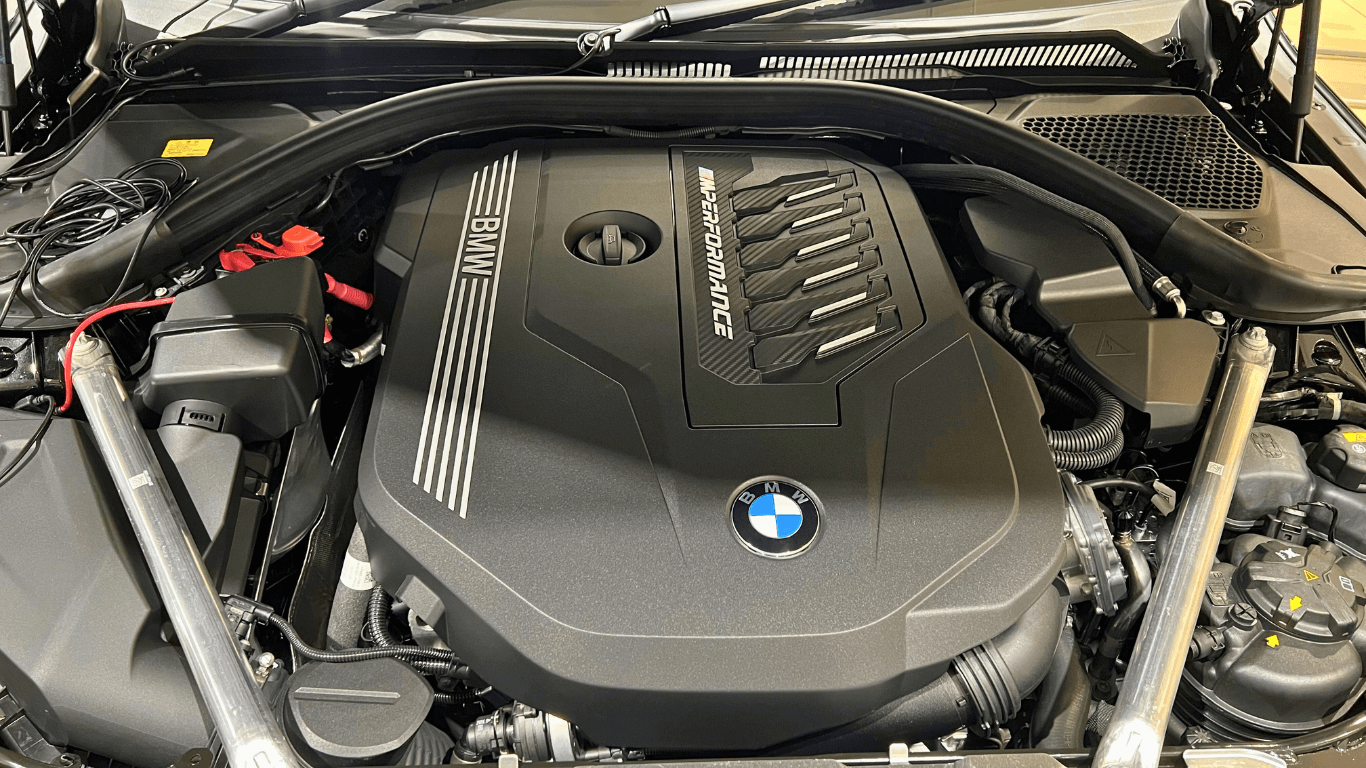BMW B58 Engine Problems: Common Issues and Solutions
The BMW B58 engine has developed a notorious reputation for reliability issues and premature failures ever since its introduction in 2015 across various BMW models. This 3.0-liter turbocharged straight-six is found in popular vehicles like the 340i, 540i, X3 M40i, and M240i, but it has presented frustrations for many owners dealing with oil leaks, turbo failures, carbon build up, and more.
If you’ve recently purchased or are considering buying a BMW with the B58 engine, you may be wondering:
What are the most common BMW B58 engine problems owners should look out for?
The twin-turbo B58 powerplant has proven susceptible to an array of defects, especially as vehicles accumulate higher mileage. Oil leaks from failed gaskets, turbocharger problems, carbon build up, water pump failures, and rod bearing wear represent the top issues facing this motor.
In this in-depth guide, we’ll explore the notorious flaws of the BMW B58 engine and equip you with solutions to diagnose and repair these inevitable problems. Read on to learn what causes the major defects, typical repair costs, and steps you can take to prolong the life of your B58 while avoiding expensive failures down the road.
Overview of the BMW B58 3.0L TwinPower Turbo Engine
First introduced in the 2015 model year 340i sedan, BMW’s B58 engine was conceived as part of the company’s new modular engine family to eventually replace the beloved naturally aspirated inline-6 N55 powerplant. The 3.0-liter twin-scroll single turbo straight-six boasted advancements like a closed-deck block, Valvetronic variable valve timing, double VANOS camshaft timing, and pistons with integrated cooling chambers.
With output ratings from 255 hp to 382 hp depending on tune, the B58 delivers smooth, eager acceleration paired with reasonable efficiency for a force-fed motor. This versatile engine powers everything from the entry-level 330i sedan to the fire-breathing M2 CS coupe.
Unfortunately, despite the numerous technological improvements packed into the B58 blueprint, a host of defects have tarnished its reputation, especially in higher-mileage vehicles.
The Most Prominent BMW B58 Engine Problems
While build quality issues affect the longevity of many modern BMW engines, the B58 stands out for the sheer variety of problems owners encounter, sometimes alarmingly early into the engine’s lifespan.
Let’s examine the most notorious flaws of the B58 powertrain:
Oil Leaks from Failed Seals and Gaskets
One of the most pervasive issues across all B58-equipped vehicles involves oil leaks from a number of points, including the valve cover, oil filter housing, and oil pan. Owners start noticing spots of oil underneath their cars or burning oil smells from the engine bay usually after a couple years of driving.
Why oil leaks develop:
- Cheap low-grade rubber gaskets deteriorate prematurely in comparison to older BMW engines. The oil filter housing gasket, for example, commonly fails around 60k miles.
- Excessive crankcase pressures generated by the turbocharger stress the gaskets.
- Design flaws like the improperly secured valvetronic gasket cause leaks.
Replacing leaky gaskets generally costs $800-1200 in labor from a shop, but oil leaks should be addressed ASAP to avoid further contamination of engine components. The valvetronic gasket specifically requires attention as oil saturates the valves, leading to carbon build up on the valves.
Turbocharger Failure
The B58’s single twin-scroll turbocharger incorporates technologies like a twin-scroll housing and anti-friction bearings to enable impressive response and minimal lag. However, as with any turbo unit, component failures can leave owners stranded when the system breaks down.
Some common turbo issues include:
- Turbo oil supply leaks – oil starving the turbo eventually causes severe damage. Warning signs are blue smoke from the exhaust and turbo flutter sounds.
- Wastegate problems – the rattling noise of a failing wastegate is unmistakable. Sticking wastegates affect boost pressures.
- Limp mode – a turbo leak can instantly trigger limp mode, reducing engine power.
Shop rates for a turbo replacement reach $2500+. BMW extended the turbo warranty for B58 models to 10 years/120k miles, but that only helps if you’re under the mileage limit. Running high quality synthetic oil is strongly advised to reduce turbo wear.
Carbon Build Up in Cylinders and Intake Ports
Thanks to direct injection, a common issue with many BMW engines involves heavy carbon accumulation on the intake valves and in the combustion chambers. Carbon deposits form from PCV oil vapors and fuel residue not getting washed away as injection occurs directly into the cylinder rather than at the port.
Symptoms of carbon fouling include:
- Loss of power and sluggish throttle response
- Occasional misfires, especially under load
- Rough cold startups and idle
When walnut shell blasting or chemical cleaning becomes necessary, the typical dealer quote reaches $1200+ for this lengthy process. Some opt to remove the valves and intake for manual cleaning. Using top tier gas containing more detergents helps reduce build up.
Water Pump and Thermostat Failure
The electrically driven water pump and thermostat represent common failure points around 60k-70k miles. Symptoms of a bad water pump are overheating or coolant leaks from the weep hole. The water pump replacement cost is around $800 from a mechanic.
A faulty thermostat that sticks open/closed will trigger incorrect temperature readings and poor heat output. The relatively inexpensive thermostat unit costs under $100, but dealers still charge $500+ in labor due to the challenging location deep in the engine.
Rod Bearing Wear
Though not as widespread on the B58 as the almost inevitable rod bearing failure plaguing the earlier N55 engine, instances of premature rod bearing wear still crop up. Excessive bearing clearance detected through oil analysis or engine noise signifies damaged bearings. The root causes include:
- Oil starvation from leaks or running too low on oil
- Infrequent oil changes
- Lugging the engine
- Hydraulic lifter failures
When the clearances exceed the maximum tolerances, owners face a full engine rebuild or replacement to the tune of $8000+. While not the most common B58 problem, rod bearings remain a weak spot in the engine design.
How to Prevent BMW B58 Engine Problems?
While some B58 defects result from inherent design flaws and cost-cutting measures, you can significantly extend the life of your engine by following smart maintenance practices:
- Regular oil changes – follow the recommended intervals using quality synthetic oil to preserve the bearings and turbocharger.
- Address oil leaks early – promptly fix any leaks from gaskets before it causes turbo damage.
- Clean the valves – walnut blast the valves around 60k miles to remove deposits if you start experiencing symptoms. Or use additive cleaners with each oil change.
- Don’t lug the engine – avoid laboring the motor and pushing high boost at low RPMs.
- Let the engine warm up before hard acceleration to reduce stress.
- Use premium fuel – the higher detergent levels in top tier gas help clean the valves and chambers over time.
While you can’t guarantee the gaskets or water pump won’t fail, diligent care and preventative maintenance makes a big difference in curbing major repairs down the road.
Is the BMW B58 Engine Reliable?
Given the variety of defects and problem areas we’ve highlighted with the B58 motor, it’s only fair to ask: Does the BMW B58 live up to the brand’s reputation for reliable, long-lasting engines?
The answer is a mixed bag. When running well and maintained properly, the B58 provides a rewarding driving experience with its eager turbo power delivery. Owners who stay on top of preventative maintenance and address issues promptly generally achieve well over 100k miles without catastrophic failures.
However, in the bigger picture, the B58 demonstrates a decline in design and manufacturing quality compared to earlier BMW benchmark engines like the N52 and N55. Problems like oil leaks, turbo defects, and gasket failures occur alarmingly early even when cars sit unused during COVID lockdowns. This suggests flimsier, lower grade components paired with intrinsically flawed designs.
The extended warranties on parts like the turbo and emissions components illustrate BMW’s awareness of these inherent weak points. Overall, the B58 still offers decent reliability by today’s standards but fails to match the storied longevity of older BMW drivetrains.
Buying a Used BMW With the B58 – What to Look For
Given the retirement of the silky smooth naturally aspirated inline-6, the B58 engine still presents the best option currently available in newer BMWs. Its dynamic performance and tuning potential make it an exciting choice.
If you’re considering purchasing a used B58-powered BMW, pay special attention to these checks:
- Thoroughly inspect for oil leaks underneath and around the engine. Look for coolant leaks too.
- Check service records – were oil changes done at least annually if not every 10k miles?
- Take it for an extended test drive. Listen for rattles from the turbo at idle and weird noises or any misfires under load.
- Get a pre-purchase inspection (PPI) focused on the engine by a reputable shop. They will check crucial items like compression and do an oil analysis.
- Consider an extended warranty for peace of mind, especially if the factory warranty is expiring.
While not without its gremlins, proper maintenance and care makes the B58 an enjoyable performance engine. Arm yourself with knowledge of the weak points and be proactive with repairs.
Conclusion – Common BMW B58 Engine Problems Summarized
The BMW B58 motor has garnered an unflattering reputation since its debut in 2015 3 Series models. While BMW intended it as a technological step forward from the acclaimed N55 straight-six, cost-cutting measures and flawed designs have resulted in a plethora of headaches for owners.
From oil leaks stemming from cheap gaskets to turbo failures and carbon build up, the B58 demonstrates premature reliability issues across all vehicles. Proper maintenance helps, but won’t prevent inherently defective parts.
While still a good performance value in the BMW lineup, the B58 lacks the unimpeachable longevity of the older NA inline-6 engines. Going into ownership aware of problem areas like rod bearings and the turbo system is key to prolonging the life of your B58. Address leaks and symptoms early before cascading and costly failures result.
With vigilance and preventative maintenance, the B58 powerplant can deliver rewarding driving dynamics for years to come. But be prepared to encounter its weak spots outlined here as the miles add up.
Hopefully this guide better informs you of the real-world issues facing BMW’s latest straight-six engine. Let us know if you have any other questions!







